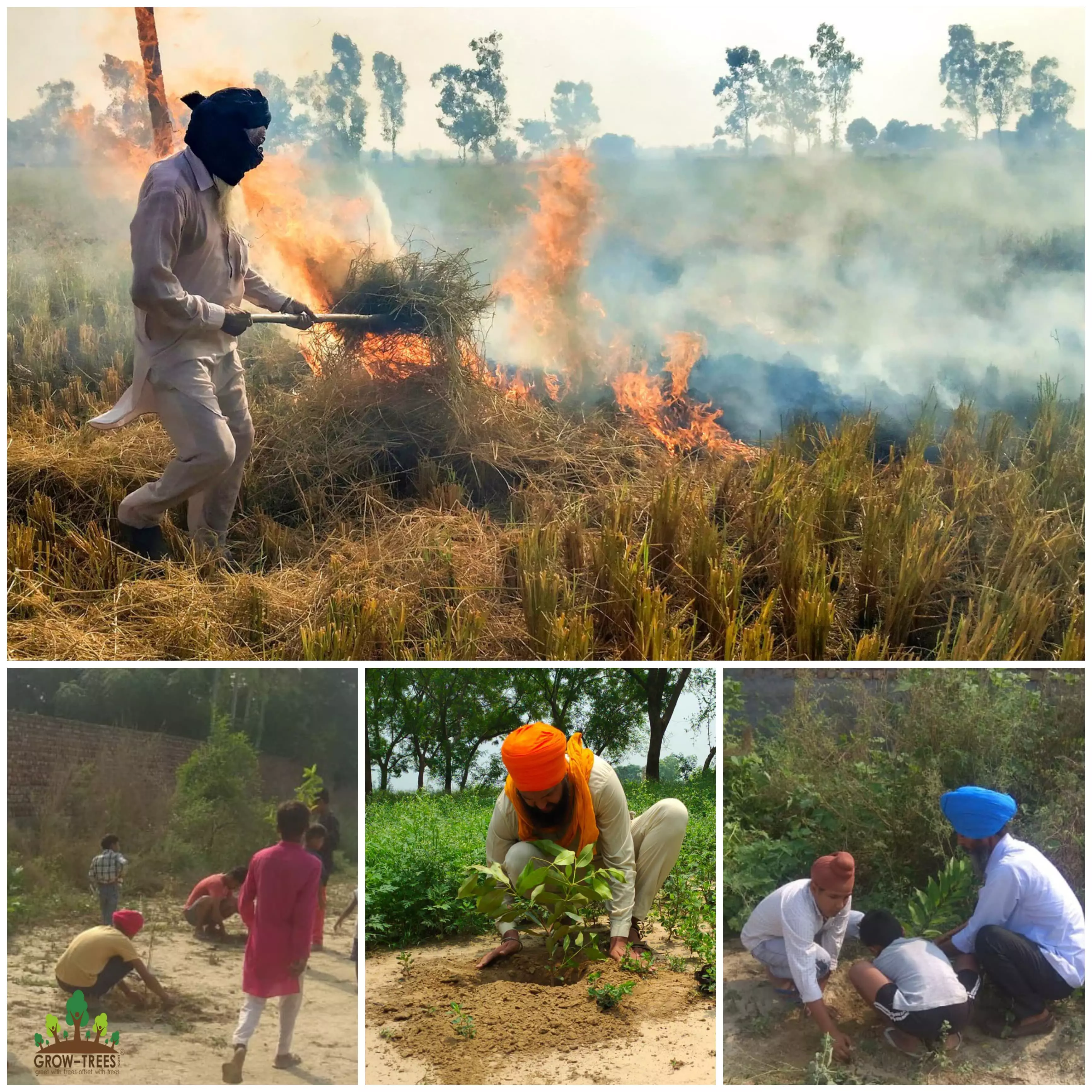Tree plantations: A solution to North India’s stubble burning impact

Stubble burning, a common agricultural practice in North India, is one of the main drivers of air pollution in the region. This annual event, akin to a vast, toxic campfire, releases pollutants into the air. As the world’s second-largest agricultural economy, India produces substantial crop residues, particularly from wheat and rice. Farmers often burn this residue as a quick and cheap way to clear fields, avoiding the labor costs of removal. This practice, responsible for an estimated 84 million tonnes of residue burned each year, significantly worsens air quality.
Roots of the Practice
The Green Revolution of the 1960s introduced mechanized farming to boost crop yields. This, however, increased the difficulty of managing crop residues. In regions like Punjab, where high mechanization and labor costs prevail, farmers turned to stubble burning as a convenient alternative, increasing pollution and environmental degradation in the process.
Pradip Shah, Co-Founder at Grow-Trees
Trees as Natural Air Purifiers
Trees play a critical role in mitigating pollution by filtering out harmful particulates like PM2.5. Studies show that trees can reduce street-level particulates by up to 60%. Certain species, such as neem, peepal, and banyan, are especially effective at absorbing pollutants. A single tree can absorb up to 20 kg of CO2 annually and release oxygen, improving air quality and supporting human health.
Strategically planting trees around agricultural fields creates “green buffer zones,” which block particulates from reaching nearby communities, reducing pollution for residents.
Native Species for Maximum Benefit
Native trees like neem, peepal, and banyan are well-suited to India’s climate and offer additional ecosystem benefits:
- Neem: Absorbs air pollutants like sulfur and nitrogen dioxide.
- Peepal: Naturally captures dust and enhances air quality.
- Banyan: Absorbs CO2 and releases oxygen, creating a healthier environment.
Hope Through Reforestation: Grow-Trees.com
To tackle stubble burning’s impact, Grow-Trees.com launched the Trees for Moga, Punjab initiative, aiming to plant 25,000 trees to serve as pollution-absorbing buffer zones. This initiative promotes biodiversity, soil conservation, and climate resilience, while supporting local communities.
Each tree planted brings us closer to a cleaner, healthier future. Let’s commit to a sustainable tomorrow, one tree at a time.
The article is authored by Pradip Shah, Co-Founder at Grow-Trees.

